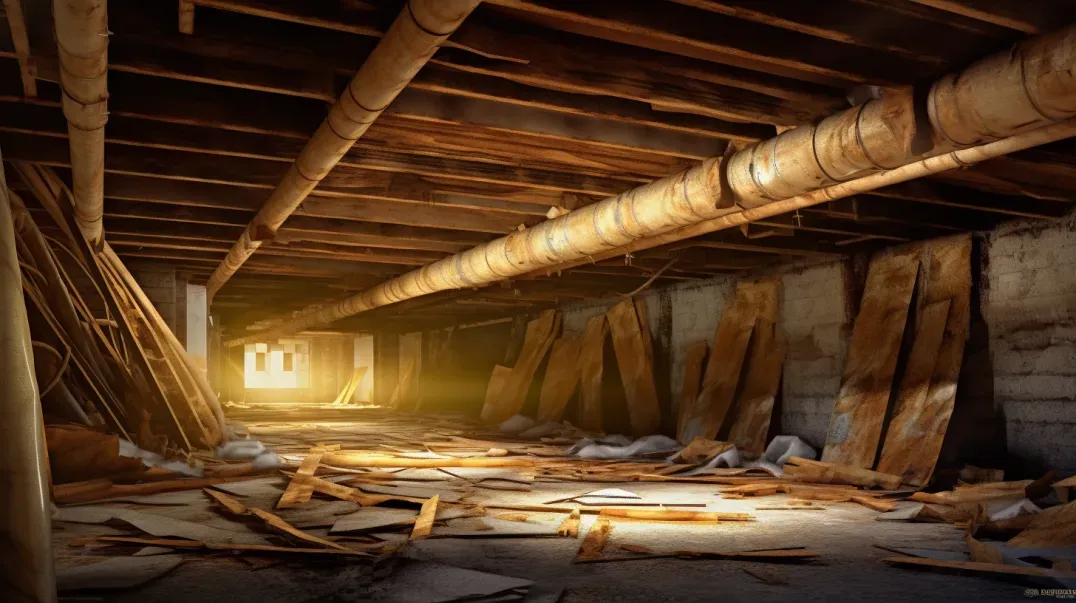Crawl spaces are often overlooked areas of a home, hidden away and out of sight, yet they play a crucial role in maintaining the structural integrity and air quality of your living environment. Much like the subtle but essential notes in a well-annotated text, crawl spaces provide foundational support and influence the overall health of your home. Understanding their significance is key to ensuring a safe, durable, and healthy living space.
The structural integrity of a home relies heavily on the condition of its crawl space. This area acts as a buffer zone, protecting the foundation from moisture and external elements. A well-maintained crawl space prevents water damage, wood rot, and pest infestations, all of which can compromise the stability of the entire structure. Just as detailed annotations can clarify complex passages in literature, proper attention to crawl spaces can uncover and address underlying issues before they escalate into major problems.
In addition to structural benefits, crawl spaces significantly impact indoor air quality. Air from the crawl space can seep into the living areas, bringing with it mold spores, dust, and allergens if not properly managed. By maintaining a clean, dry, and well-ventilated crawl space, homeowners can prevent these contaminants from entering their home, ensuring a healthier living environment. This is akin to how thoughtful annotations and insights can enhance the clarity and enjoyment of a text.
In this blog, we will explore the vital functions of crawl spaces, common issues that can arise, and effective maintenance strategies. Our goal is to provide you with the knowledge and tools to keep this essential part of your home in optimal condition, ensuring both its structural soundness and the well-being of its inhabitants.
Understanding Crawl Space Repair Needs
Understanding the repair needs of a crawl space is essential for maintaining the overall health and stability of a home. Much like engaging deeply with a text to uncover its full meaning, identifying and addressing crawl space issues requires careful observation and expert evaluation. This section explores common problems found in crawl spaces and offers guidance on assessing specific repair needs.
Common Crawl Space Issues
Crawl spaces are susceptible to a range of problems that can compromise both the structural integrity of a home and the health of its occupants. Here are some typical issues:
- Moisture Accumulation: Excessive moisture in crawl spaces often results from inadequate drainage, poor ventilation, or groundwater infiltration. This moisture can lead to a host of other problems if not addressed promptly.
- Mold Growth: Moisture creates the perfect environment for mold to thrive. Mold not only damages building materials but also poses serious health risks, such as respiratory issues and allergies.
- Structural Damage: Prolonged exposure to moisture and pests can weaken the structural components of a crawl space, including support beams and floor joists. This can lead to sagging floors, cracks in the foundation, and, in severe cases, structural collapse.
Potential Consequences of Neglecting These Issues:
- Health Risks: Mold and mildew can adversely affect indoor air quality, leading to health problems for the home's occupants.
- Increased Repair Costs: Ignoring minor issues can result in more significant damage over time, leading to higher repair costs.
- Reduced Property Value: A home with an unhealthy or unstable crawl space is less attractive to potential buyers, reducing its market value.
Assessing Your Specific Needs
Before contacting a contractor, homeowners can take several steps to assess the condition of their crawl space. This preliminary assessment helps in understanding the extent of the issues and preparing for professional evaluation.
Tips for Homeowners:
- Visual Inspection: Start by visually inspecting the crawl space for obvious signs of damage, such as water stains, mold growth, and pest infestations. Look for standing water, dampness, or any unusual odors that might indicate moisture problems.
- Check for Structural Issues: Examine the support beams and floor joists for signs of rot, cracks, or sagging. Use a flashlight to inspect hidden corners and areas that might not be immediately visible.
- Monitor Humidity Levels: Use a hygrometer to measure the humidity levels in your crawl space. High humidity indicates potential moisture problems that need to be addressed.
- Look for Pests: Check for signs of pests, such as droppings, nests, or chewed wood. Pests can cause significant damage to the structural components of the crawl space.
Importance of a Professional Evaluation:
While a preliminary assessment can help identify obvious issues, a professional evaluation is crucial for a thorough understanding of the extent of damage and the necessary repairs.
Professionals use specialized tools and techniques to:
- Conduct Detailed Inspections: Professionals can identify hidden problems that may not be visible during a basic visual inspection. They use advanced equipment such as moisture meters, infrared cameras, and structural probes.
- Provide Accurate Diagnosis: Experts can accurately diagnose the root causes of crawl space issues and recommend effective solutions tailored to your specific needs.
- Ensure Comprehensive Repairs: A professional evaluation ensures that all aspects of the problem are addressed, preventing future issues and safeguarding the health and stability of your home.
By understanding common crawl space issues and conducting an initial assessment, homeowners can better prepare for professional evaluations and ensure timely and effective repairs. This proactive approach helps maintain the integrity and health of the home, much like careful annotation and analysis enhance the understanding of a text.
Qualifications of a Good Crawl Space Contractor
Choosing the right contractor for crawl space repairs is crucial to ensure the job is done correctly and efficiently. Much like selecting credible sources for an annotated bibliography, finding a qualified and specialized contractor requires careful consideration of their credentials and experience. This section outlines the essential qualifications of a good crawl space contractor, focusing on licensing, certification, and relevant experience.
Licensing and Certification
Credible crawl space contractors should possess the necessary licenses and certifications that validate their expertise and professionalism. These credentials are indicators of their commitment to industry standards and regulatory compliance.
Types of Licenses and Certifications:
- General Contractor License: This basic license ensures the contractor has met the minimum requirements set by local authorities to perform construction work.
- Specialized Certifications: Look for certifications from recognized industry bodies such as the Basement Health Association (BHA) or the National Association of Waterproofing and Structural Repair Contractors (NAWSRC). These certifications indicate specialized training and expertise in crawl space repairs and waterproofing.
- Professional Training and Accreditation: Certifications from training programs like those offered by the International Association of Certified Home Inspectors (InterNACHI) or the National Association of Home Builders (NAHB) can also be valuable.
How to Verify These Credentials and Why They Matter:
- Verification Process: Homeowners should verify the contractor's credentials by checking with the issuing authorities or industry bodies. This can often be done online through official websites or by contacting the organizations directly.
- Importance of Credentials: Verified credentials ensure that the contractor has the necessary knowledge and skills to handle complex crawl space issues. They also provide assurance that the contractor adheres to ethical practices and industry standards, reducing the risk of subpar work or scams.
Experience and Specialization
When it comes to crawl space repairs, experience and specialization are key factors that distinguish a good contractor from a general one. Choosing a contractor with specific expertise in crawl space issues ensures that they are well-versed in the unique challenges and solutions required for this type of work.
Importance of Choosing a Specialized Contractor:
- Targeted Expertise: Contractors who specialize in crawl space repairs are more likely to be familiar with the latest technologies and methods for addressing moisture control, structural reinforcement, and pest management. Their focused experience allows them to provide more effective and long-lasting solutions.
- Efficient Problem-Solving: Specialized contractors can quickly identify and diagnose problems based on their past experience with similar issues. This efficiency can save time and money, preventing minor issues from escalating into major repairs.
Questions to Ask About Their Past Projects and Expertise:
- Relevant Experience: "Can you provide examples of past projects similar to mine?" This question helps determine if the contractor has successfully handled issues like yours.
- Specific Techniques Used: "What methods and materials do you typically use for crawl space repairs?" Understanding their approach can give you confidence in their ability to address your specific needs.
- Customer References: "Can you provide references from previous clients?" Speaking with past clients can provide insight into the contractor's reliability, workmanship, and customer service.
- Problem-Solving Skills: "How do you handle unexpected issues that arise during a project?" This question assesses their problem-solving capabilities and adaptability.
By focusing on licensing, certification, experience, and specialization, homeowners can select a qualified contractor who will deliver high-quality, effective crawl space repairs. This careful selection process is akin to thoroughly vetting sources for an academic project, ensuring that only the most credible and relevant information is used to achieve the best outcomes.
Evaluating Contractor Reputation
Evaluating the reputation of a crawl space contractor is crucial to ensure that you hire someone reliable and competent. Just as critical reviews and analyses help readers understand the quality and significance of a text, reviews, testimonials, and references can provide valuable insights into a contractor's performance and reliability. This section outlines how to find and interpret reviews and testimonials and the importance of conducting reference checks.
Reviews and Testimonials
Online reviews and testimonials are accessible tools for gauging the quality of service provided by a crawl space contractor. However, understanding how to find and interpret this feedback effectively is essential for making an informed decision.
How to Find Reviews and Testimonials:
- Online Review Platforms: Websites such as Google Reviews, Yelp, and Angie's List are popular platforms where customers leave feedback about their experiences with contractors.
- Social Media and Forums: Platforms like Facebook and Reddit often have local community groups where members discuss their experiences with service providers.
- Contractor's Website: Many contractors feature testimonials from satisfied customers on their own websites, providing a curated view of their positive feedback.
Tips on What to Look For in Feedback:
- Consistency in Feedback: Look for recurring themes in the reviews. Consistently positive feedback about specific aspects, such as punctuality, quality of work, and customer service, indicates reliability.
- Detailed Reviews: Detailed reviews that describe specific experiences and outcomes are more informative than brief, general comments. They provide a clearer picture of what you can expect.
- Resolution of Complaints: Check how the contractor responds to negative reviews. A contractor who addresses complaints professionally and resolves issues demonstrates accountability and commitment to customer satisfaction.
- Overall Rating Trends: While individual reviews are important, also consider the overall rating trend. A high average rating with numerous reviews generally indicates a trustworthy contractor.
Reference Checks
In addition to online reviews, directly contacting references provided by the contractor is a crucial step in evaluating their reputation. References offer firsthand insights into the contractor's work ethic, quality, and reliability.
Importance of Asking for and Contacting References:
- Verification of Claims: References help verify the contractor's claims about their experience and capabilities. Speaking with previous clients can confirm whether the contractor delivered on their promises.
- Insight into Work Process: References can provide details about the contractor's work process, including their punctuality, communication, problem-solving skills, and adherence to timelines.
Key Questions to Ask References:
- Project Details: "Can you describe the scope of the project the contractor completed for you?" Understanding the specifics helps gauge whether the contractor's experience matches your needs.
- Quality of Work: "Were you satisfied with the quality of the work performed?" This question directly addresses the outcome and craftsmanship of the contractor's efforts.
- Timeliness and Budget: "Did the contractor complete the project on time and within budget?" Reliability in adhering to schedules and budgets is crucial for any successful project.
- Communication and Professionalism: "How was the contractor's communication throughout the project?" Effective communication is key to a smooth project, and professionalism reflects the contractor's respect for the client.
- Post-Project Support: "Did the contractor provide adequate support and address any issues after the project was completed?" Post-project support indicates the contractor's commitment to customer satisfaction and long-term service quality.
By carefully evaluating reviews, testimonials, and references, homeowners can gain a comprehensive understanding of a contractor's reputation. This thorough vetting process ensures that you hire a contractor who is not only skilled but also reliable and trustworthy, much like how detailed annotations and reviews help readers grasp the true quality and depth of a text.
Communication and Professionalism
Effective communication and professionalism are cornerstones of a successful crawl space repair project. Much like how clear annotations facilitate a deeper understanding of a text, clear and professional interactions with your contractor ensure the project progresses smoothly and meets your expectations. This section explores what to expect during initial consultations and the importance of effective communication styles.
Initial Consultations
The initial consultation with a crawl space repair contractor sets the tone for the entire project. It’s an opportunity to assess the contractor’s professionalism, reliability, and suitability for your needs.
What to Expect During an Initial Consultation:
- Comprehensive Evaluation: A thorough inspection of your crawl space to identify existing issues and assess the overall condition. The contractor should explain their findings clearly and provide a preliminary diagnosis.
- Detailed Discussion: Expect a detailed discussion about potential solutions, including the methods and materials that may be used. The contractor should answer any questions you have and explain the reasoning behind their recommendations.
- Cost Estimate: A professional contractor should provide a detailed, written estimate that outlines the scope of work, associated costs, and a timeline for the project. This estimate should be clear and transparent, with no hidden fees.
- Credentials and References: The contractor should willingly provide proof of their licenses, certifications, and insurance. They should also offer references from previous clients to verify their experience and reliability.
Signs of Professionalism and Reliability:
- Punctuality: Arriving on time for the consultation indicates respect for your time and a commitment to professionalism.
- Preparedness: Bringing necessary tools and documentation, such as a camera for inspections and a portfolio of past projects, shows thorough preparation.
- Clarity and Honesty: Providing clear, honest answers to your questions and not overselling their services are signs of integrity. They should discuss potential challenges and realistic outcomes.
- Listening Skills: Paying close attention to your concerns and requirements demonstrates a customer-focused approach and willingness to tailor their services to your needs.
Communication Styles
Effective communication is essential for the success of any repair project. It ensures that both you and the contractor are on the same page and that the project progresses smoothly without misunderstandings.
Importance of Choosing a Contractor Who Communicates Clearly and Promptly:
- Transparency: A contractor who communicates clearly and promptly keeps you informed about the project’s progress, any issues that arise, and any necessary adjustments. This transparency builds trust and confidence in their work.
- Responsiveness: Quick and efficient responses to your inquiries reflect the contractor’s commitment to customer service and their organizational skills.
- Detailed Explanations: Clear communication involves providing detailed explanations of the work being done, the reasons behind specific choices, and how these will address your crawl space issues.
How Effective Communication Can Impact the Success of the Repair Project:
- Prevents Misunderstandings: Clear communication helps prevent misunderstandings about the scope of work, timelines, and costs. It ensures that both parties have the same expectations, reducing the likelihood of disputes.
- Facilitates Problem-Solving: When unexpected issues arise, effective communication allows for quick and collaborative problem-solving, minimizing delays and ensuring the project stays on track.
- Enhances Customer Satisfaction: A contractor who communicates well ensures that you feel informed and involved throughout the project. This engagement leads to higher satisfaction with the finished work and builds a positive relationship.
- Ensures Accountability: Regular updates and transparent communication hold the contractor accountable for their progress and the quality of their work, ensuring they meet agreed-upon standards and deadlines.
By focusing on communication and professionalism during initial consultations and throughout the project, homeowners can ensure a smooth, efficient, and satisfactory repair process. This approach is akin to how effective annotation and clear communication enhance understanding and appreciation of a text, ensuring all parties are aligned and engaged in achieving the best possible outcomes.
Finalizing Your Choice
Choosing the right contractor for your crawl space repair is a critical step that can significantly impact the success and satisfaction of your project. Much like selecting the most credible sources for an academic paper, making an informed decision involves careful consideration of various factors. This section provides guidance on making the final decision and what to expect after hiring a contractor.
Making the Decision
After evaluating all potential contractors, making the final decision involves weighing several important factors to ensure you choose the best fit for your project.
How to Make a Final Decision:
- Review Contract Terms: Carefully examine the terms of the contract proposed by each contractor. Ensure it includes a clear scope of work, detailed cost estimates, payment schedules, and timelines. The contract should also outline the responsibilities of both parties and procedures for handling changes or unexpected issues.
- Evaluate Warranty Offers: Consider the warranty options provided by the contractors. A good warranty indicates the contractor’s confidence in their work and provides you with protection in case of future issues. Look for comprehensive warranties that cover both materials and workmanship.
- Check Contractor’s Availability: Confirm the contractor’s availability to start and complete the project within your desired timeline. A contractor who can accommodate your schedule and provide a realistic completion date is crucial for avoiding unnecessary delays.
- Assess Communication and Professionalism: Reflect on your interactions with the contractors during consultations. Choose a contractor who communicated clearly, demonstrated professionalism, and showed a willingness to address your concerns.
- Consider Past Performance: Review the feedback from references and online reviews. Contractors with consistent positive feedback and successful past projects are more likely to deliver satisfactory results.
What to Expect After Hiring
Once you have chosen a contractor, there are several steps to ensure a smooth transition from hiring to the completion of the repair project.
Outline of the Next Steps:
- Contract Signing: Finalize the agreement by signing the contract. Ensure that all agreed-upon terms, including the scope of work, costs, timelines, and warranties, are clearly documented.
- Scheduling: Work with the contractor to establish a detailed schedule for the project. This should include start and end dates, as well as key milestones and deadlines for different phases of the repair work.
- Preparation for Repair Work: Prepare your home and crawl space for the upcoming repairs. This might involve clearing the area of any obstructions, ensuring easy access for the workers, and arranging temporary accommodations if necessary.
Tips on How to Stay Involved and Informed:
- Regular Communication: Maintain open lines of communication with the contractor throughout the project. Schedule regular check-ins to discuss progress, address any concerns, and receive updates on the work.
- Monitor Progress: Stay informed about the project’s progress by visiting the site regularly. This allows you to see firsthand how the work is being carried out and ensures that it meets your expectations.
- Ask Questions: Don’t hesitate to ask questions or seek clarifications about any aspect of the repair work. Understanding the processes and decisions helps you stay engaged and ensures transparency.
- Review Milestones: At each key milestone, review the completed work with the contractor to ensure it aligns with the contract terms and quality standards. Address any discrepancies or issues promptly.
- Final Inspection: Once the repair work is completed, conduct a final inspection with the contractor to verify that all tasks have been completed satisfactorily. Ensure that the crawl space is left clean and that any final adjustments are made as needed.
By carefully finalizing your choice and staying involved throughout the repair process, you can ensure a successful and satisfactory outcome for your crawl space project. This approach is similar to the meticulous process of drafting, revising, and finalizing an academic paper, where attention to detail and active engagement lead to the best possible results.
FAQs
Contact Trench Guys Today!
Trench Guys will do everything we can to ensure your experience with us is excellent.
Request A FREE Estimate
Request a Free Estimate Form
Checkout Recent Post
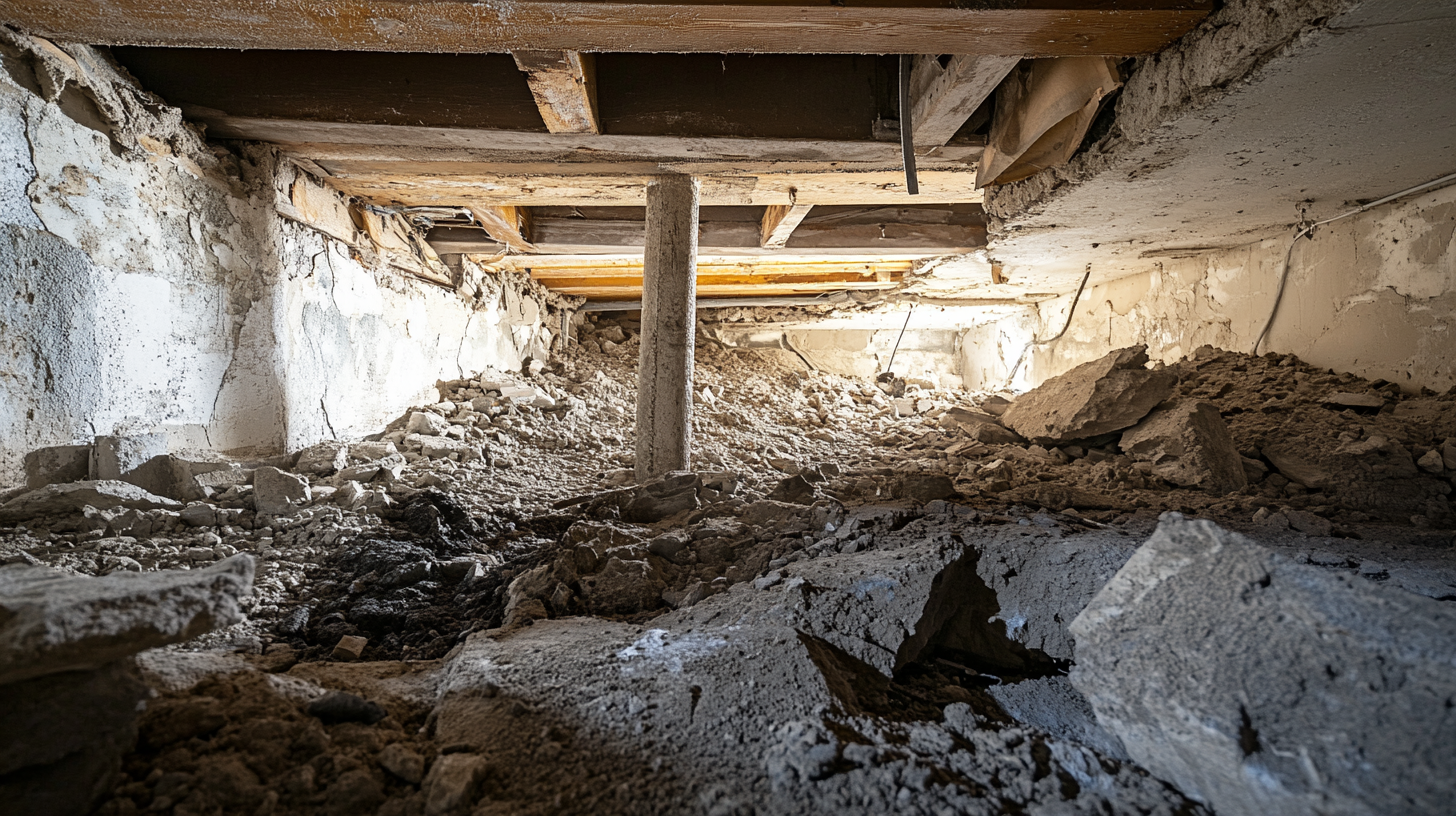
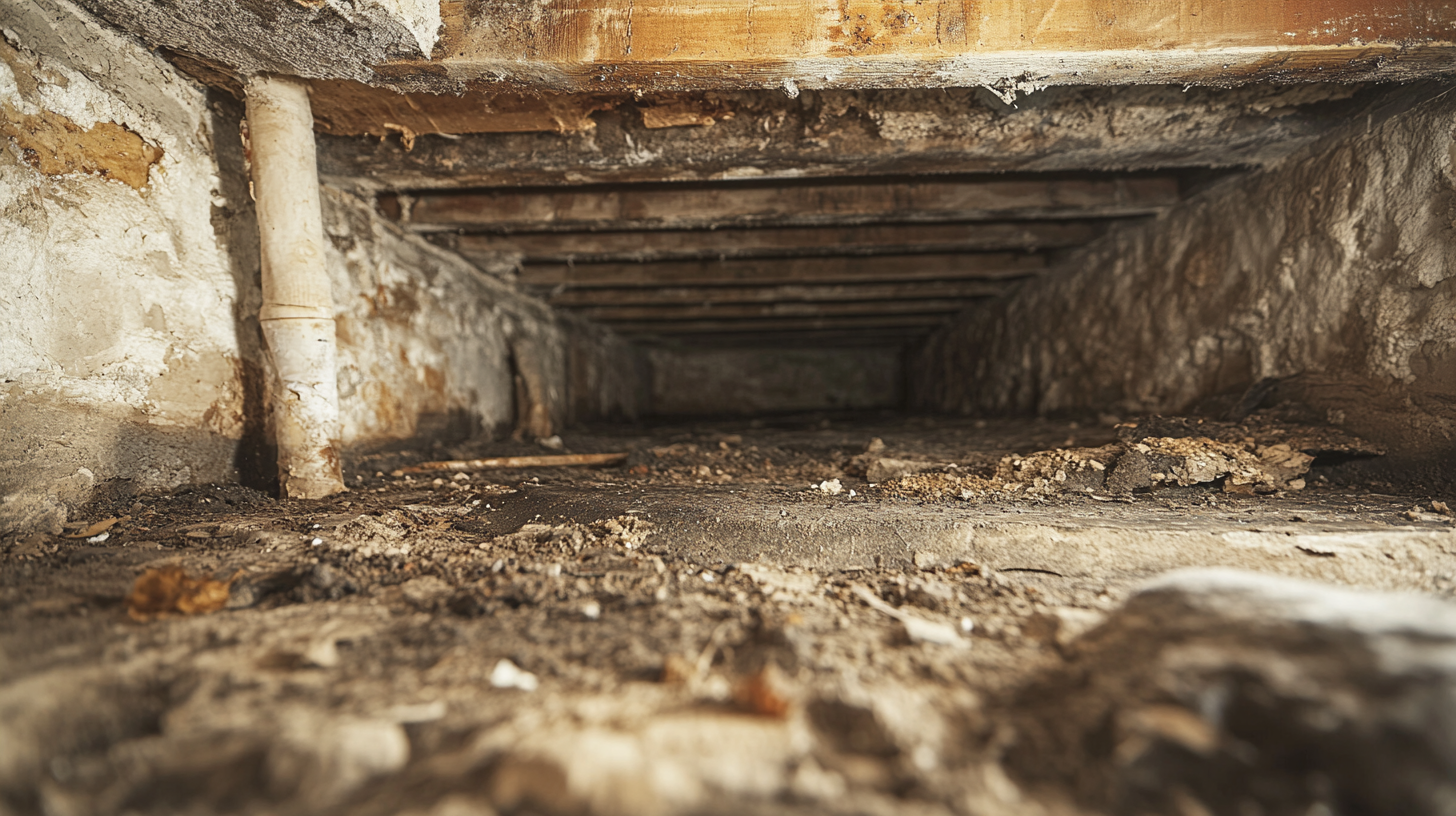
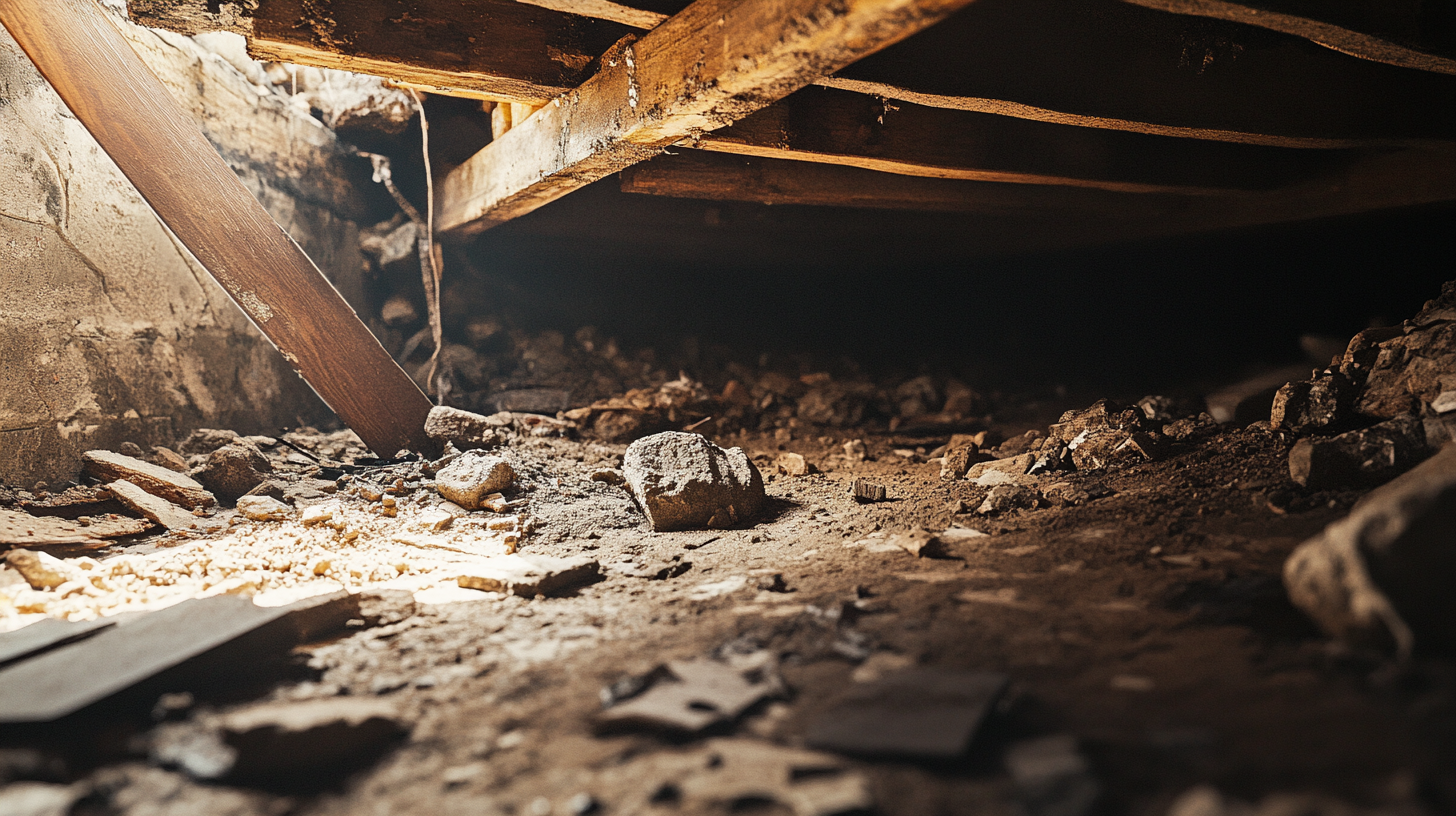
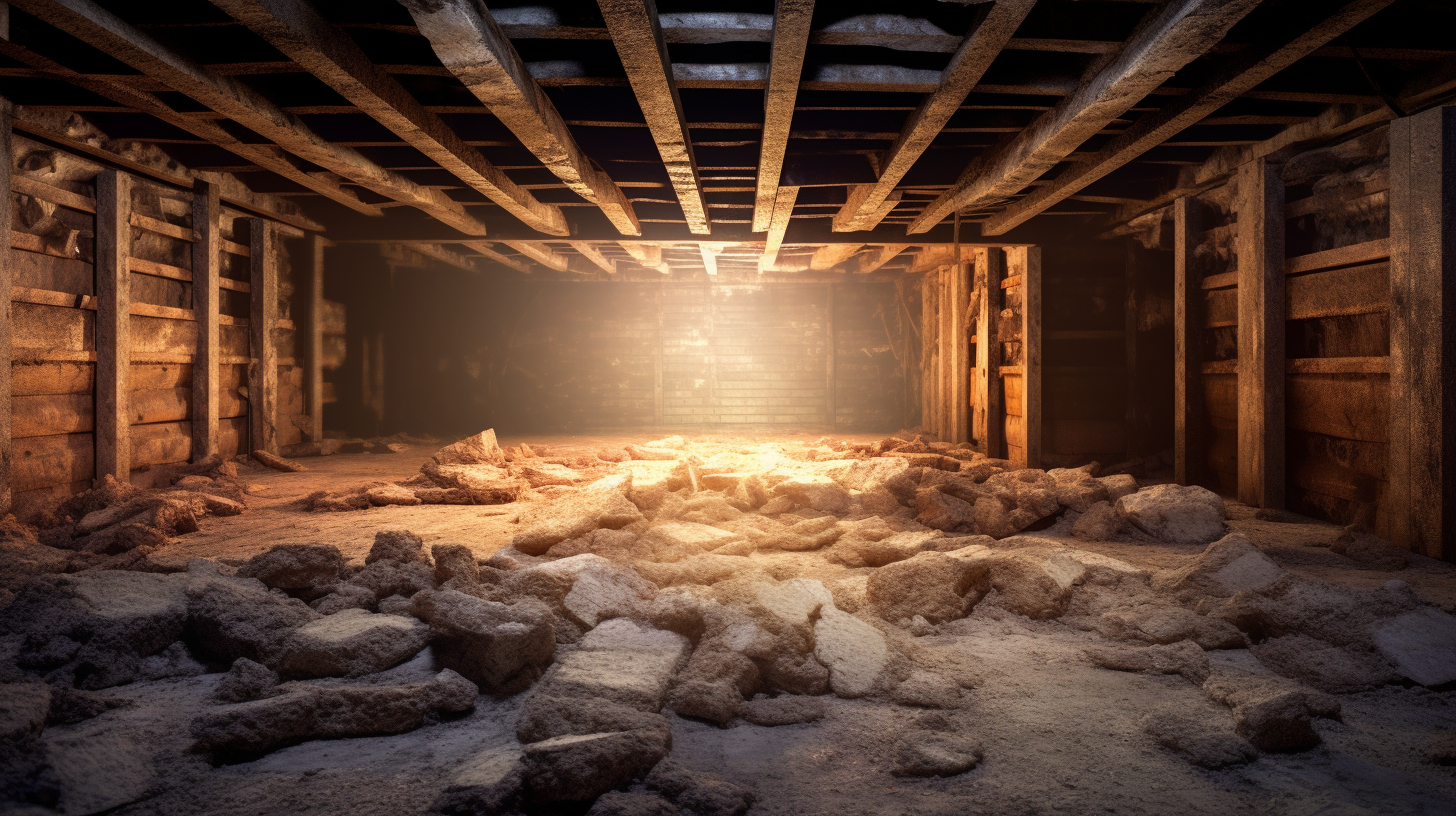
Got a Question? We’re Here to Help.
You can arrange an appointment or make an enquiry by phone or email, orget in touch to us via our contact form.


